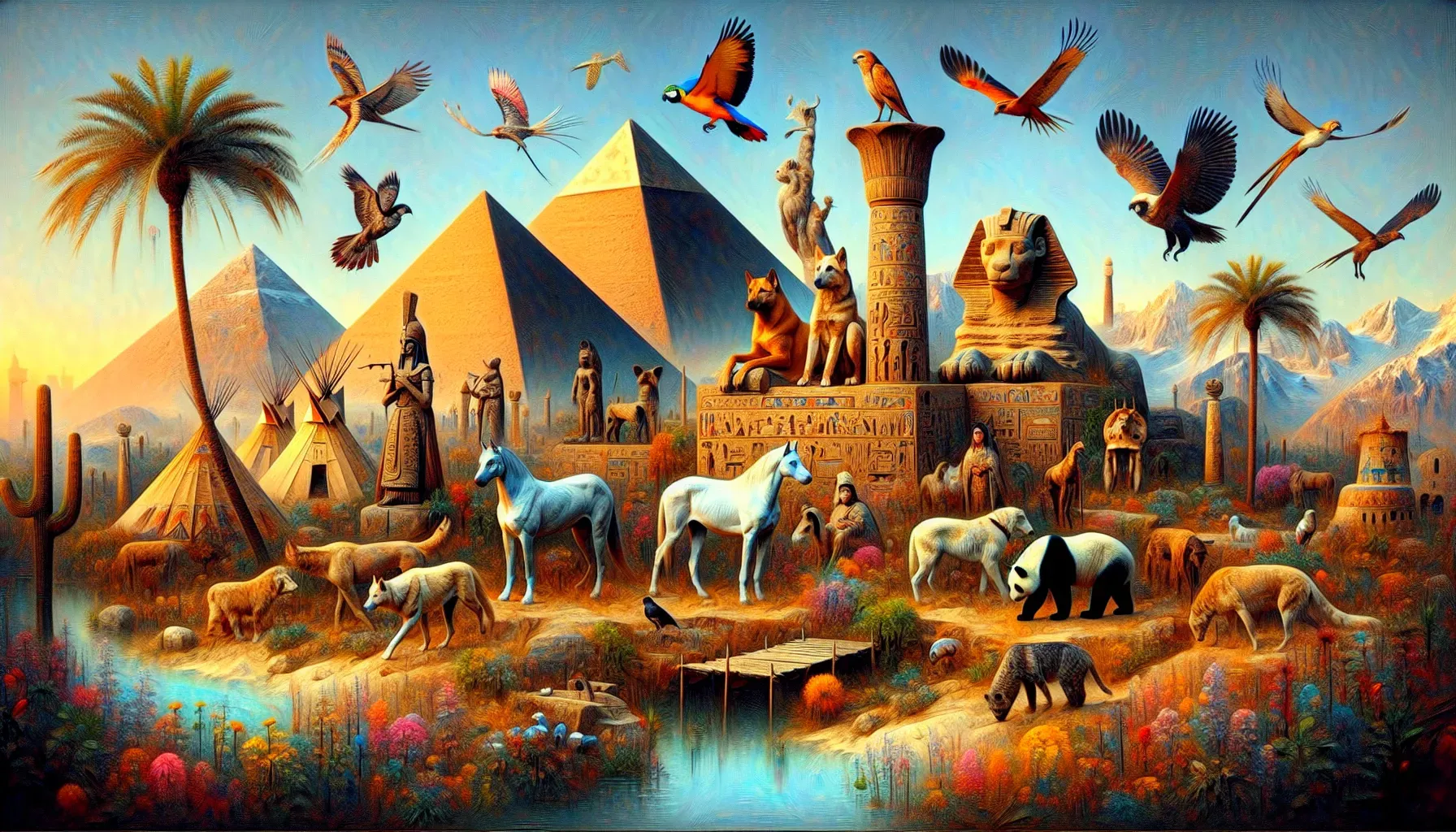Paws Across Cultures: Exploring the Rich History of Pet Care in Ancient Civilizations

Ancient Egypt, renowned for its awe-inspiring monuments and enigmatic pharaohs, also held cats in the highest esteem. These graceful felines were not merely domesticated animals but were revered as sacred beings embodying the divine qualities of Bastet, the goddess of home, fertility, and childbirth. Cats were cherished members of households, safeguarding homes from vermin and providing companionship to their human counterparts. Understanding the intricate relationship between ancient Egyptians and their revered cats offers profound insights into the origins of domestic cat care and the enduring symbolism attributed to these enigmatic creatures.
Exploring the Sacred Bond Between Egyptians and Cats
In the grandeur of the Roman Empire, dogs occupied multifaceted roles, transcending mere companionship to become guardians, hunters, and symbols of loyalty. From fierce war dogs accompanying soldiers into battle to faithful household protectors, canines were deeply ingrained in the fabric of Roman society. Delving into the historical significance of dogs unveils their integral presence within ancient familial structures and societal hierarchies, illuminating the timeless bond between humans and dogs that persists to this day.
The Role of Dogs in the Roman Empire's Society
Native American cultures revered avian species as more than just creatures of flight; birds held profound spiritual significance, serving as messengers, guides, and guardians. From the majestic eagle symbolizing strength and vision to the cunning raven embodying wisdom and trickery, birds permeated Native American traditions with their symbolic richness. Understanding the intertwined relationship between indigenous peoples and avian companions provides a captivating glimpse into ancient pet care practices rooted in reverence for nature's winged wonders.
Related Article: Beyond Words: Visual Storytelling in Pet Care Communication
Spiritual Significance of Birds in Native American Cultures
The opulent courts of Chinese dynasties boasted extravagant menageries teeming with exotic animals from distant lands. These imperial collections not only showcased wealth and power but also fostered a fascination for exotic creatures that continues to shape modern pet keeping. Unraveling the allure of these grand menageries unveils China's historical penchant for nurturing exotic pets, laying the foundation for contemporary exotic pet care practices that echo the allure of bygone imperial extravagance.
Within the rugged landscapes of ancient Scandinavia, pets held an integral role in Norse culture, serving as loyal companions, protectors, and even spiritual conduits. Dogs stood as stalwart defenders alongside Viking warriors, while enigmatic felines were esteemed for their enigmatic prowess as hunters and guardians. Peering into the annals of Viking lore unveils a profound appreciation for pets that transcended mere utilitarian purposes, enriching daily life with unwavering companionship and mystical allure.
The Influence of Chinese Dynasties on Exotic Pet Keeping
The nomadic tribes of the Mongol Steppes forged an indomitable empire astride powerful steeds that became synonymous with their conquests. Horses were revered not just as means of transportation but as esteemed companions intricately woven into Mongolian culture. Exploring the legacy of equine care among the Mongols unveils a deep-rooted bond between humans and horses that shaped empires through unparalleled equestrian expertise and unwavering camaraderie.
Related Article: Provoking Thought: Telling Tales to Educate & Empower Pet Owners by Dr. Malik Johnson
The Importance of Pets in Viking Lore and Life
In ancient Mesoamerica, birds held a sacred place in Aztec society, embodying divine qualities while also gracing households as beloved companions. Among these feathered wonders, Quetzals stood as revered avian deities symbolizing freedom, beauty, and fertility. Unveiling the Aztecs' intricate relationship with these avian marvels offers a captivating narrative that intertwines spirituality with everyday pet care practices, showcasing a civilization's reverence for nature's winged marvels.
The Legacy of Equine Care Among Mongol Tribes
The annals of history reveal a myriad of pet care practices employed by ancient civilizations to ensure the well-being of their animal companions. From rudimentary medical treatments to holistic healing approaches deeply rooted in cultural beliefs, these historical veterinary practices have left an indelible mark on modern pet care methodologies. By delving into ancient veterinary wisdom, we gain valuable insights into how historical pet care methods continue to inform contemporary veterinary science and compassionate pet care practices.
Our journey through ancient civilizations has illuminated the timeless bond between humans and their cherished animal companions. These historical insights serve as poignant reminders that pet care transcends mere practicality; it embodies a profound connection that has endured across centuries. As we draw inspiration from our ancestors' reverence for animals, we enrich our understanding of pet care's enduring legacy while nurturing our own bonds with beloved pets today.
Frequently Asked Questions
In ancient Egypt, cats were revered as sacred beings associated with the goddess Bastet, symbolizing home and fertility. They were cherished companions, protecting households from vermin and providing emotional support to their human families. This deep bond highlights the significance of cats in daily life and their divine representation in Egyptian culture.
Dogs held various roles in the Roman Empire, serving as guardians, hunters, and loyal companions. They were integral to family life and societal structures, often accompanying soldiers into battle or protecting homes. This multifaceted relationship underscores the enduring bond between humans and dogs throughout history.
Birds were highly revered in Native American cultures, symbolizing spiritual messages and guidance. Species like eagles represented strength, while ravens embodied wisdom. Their roles extended beyond physical presence, reflecting a deep connection with nature and influencing pet care practices that honored these avian companions.






